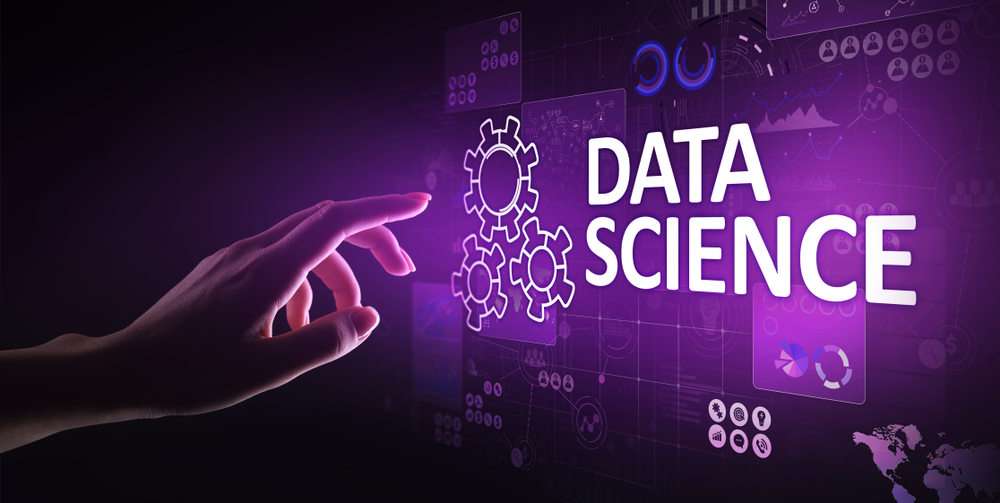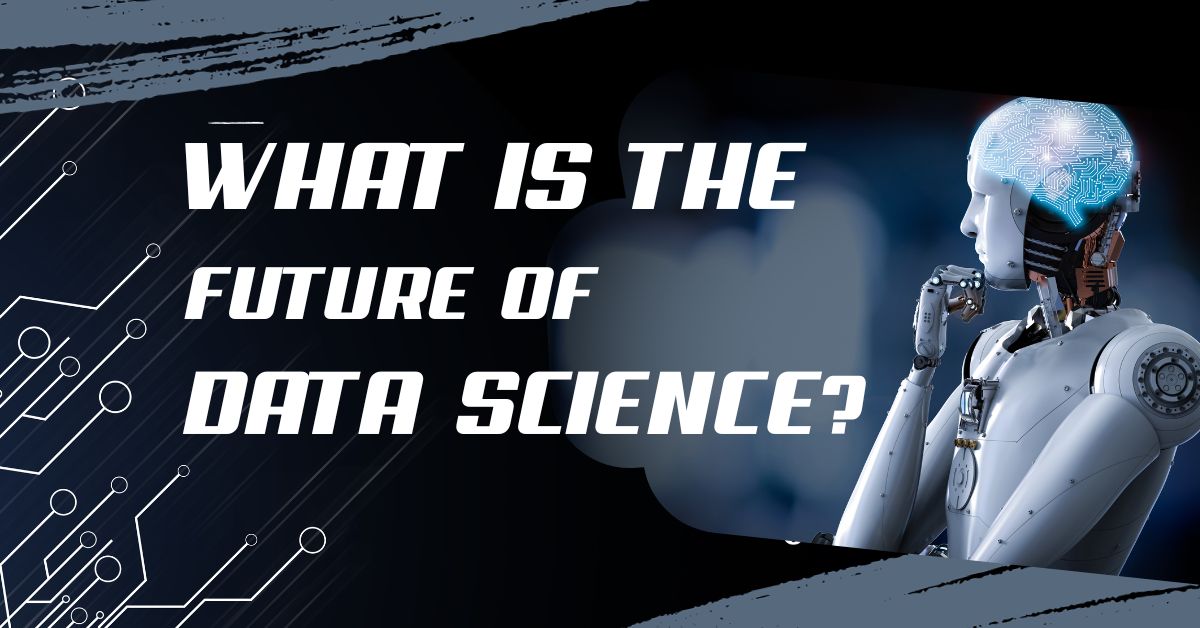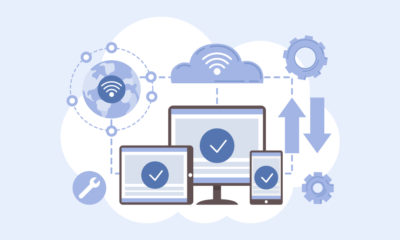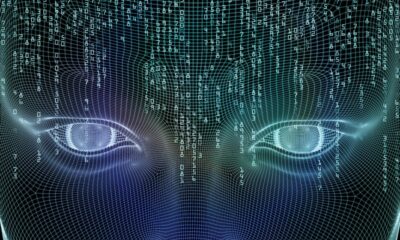Tech
Exploring the World of Data Science

Data science is now a key component of today’s technology environment, propelling developments across industries including banking and healthcare. Finding valuable insights in this massive ocean of data has become increasingly important as it continues to grow at an unparalleled rate. This essay dives into the complex field of data science, examining its fundamental ideas, practical uses, and prospects.
Understanding Data Science
The interdisciplinary area of data science employs scientific procedures, systems, algorithms, and methodologies to glean information and understanding gleaned from organized and unstructured data. To find hidden patterns and forecast future trends, it uses a broad range of methods from Data mining, machine learnings, and big data analytics.
When it comes to deciphering intricate data sets, creating predictive models, and offering practical insights that inform decision-making, data scientists are indispensable. Their proficiency is in the nexus of domain knowledge, computer science, and statistics, which allows them to address a wide range of problems in different sectors.
The Core Components of Data Science
The basis of data science is made up of various elements that work together to extract value from data as a whole. Data gathering, data cleansing, data analysis, and data visualisation are some of these components.
The process of collecting raw data from a variety of sources, including databases, internet repositories, and real-time sensors, is known as data collection. Because this data is frequently noisy and unstructured, thorough cleaning and preparation are necessary to guarantee accuracy and consistency.
The core of data science is data analysis, which uses machine learning algorithms and statistical methods to find patterns, correlations, and trends in the data. Simple descriptive statistics to intricate predictive modelling and deep learning can all be used in this investigation.
When it comes to effectively presenting insights, data visualisation is essential. Data scientists can communicate their findings in a way that stakeholders can easily comprehend by using interactive dashboards, graphs, and charts. This helps to facilitate well-informed decision-making.
Applications of Data Science
Numerous industries have embraced data science, which has transformed how businesses function and make decisions. Data science is applied in the healthcare industry to optimise hospital operations, personalise treatment programs, and forecast patient outcomes. Financial organisations use data science to create algorithmic trading techniques, evaluate credit risk, and find fraud.
Data science helps businesses in the marketing domain by helping them to comprehend consumer behaviour, segment markets, and develop focused advertising campaigns. The retail industry uses data science to manage supplies, forecast demand, and enhance customer experiences. Furthermore, data science is essential to the advancement of industries like cybersecurity, natural language processing, and autonomous driving.
The Future of Data Science

Data science
Data science will develop more in step with the ongoing changes in technology. We foresee exciting future advancements driven by the convergence of AI/ML (artificial intelligence, machine learning, and data science). It is anticipated that these developments would improve predictive model accuracy, automate laborious operations, and yield more insightful data.
Furthermore, as Internet of Things (IoT) devices proliferate and big data becomes more accessible, more data will be generated for analysis, expanding the limits of data science. The significance of ethical factors, like algorithmic bias and data privacy, will only grow, necessitating the creation of guidelines and frameworks to guarantee ethical data science operations.
The Importance of Data Literacy
Data literacy is crucial, especially as data science becomes more and more integrated into numerous industries. Companies need to make the investment in training employees to comprehend and analyse data in order to create a culture where making decisions based on data is valued. This entails educating staff members on how to use data analysis software, comprehend fundamental statistical ideas, and assess data-driven insights critically.
Organisations may enable their staff to drive innovation, make well-informed decisions, and keep a competitive edge in the ever-changing data world by encouraging data literacy.
Challenges and Considerations in Data Science
Data science offers many advantages, but it also has drawbacks. Handling the enormous amount and variety of data presents a huge difficulty that calls for advanced tools and processing methods to be done effectively. Furthermore, maintaining the accuracy and integrity of data is essential since incomplete or skewed data can provide false conclusions and poor decision-making.
The ethical ramifications of data science should also be taken into account. Due to their extensive access to sensitive data, data scientists have an obligation to manage this information responsibly and maintain security and privacy. This entails following data protection laws, putting strong security measures in place, and being open and honest about how data is used and analyzed.
Summary
Leading the way in the technology revolution is data science, which turns unprocessed data into insightful knowledge that advances numerous sectors. Data science is an interdisciplinary fields that combines domain knowledge, computer science, and statistics to provide strong tools for solving challenging issues and forecasting trends. The future of data science will be shaped by the incorporation of AI and machine learning, as well as by a strong focus on data literacy and ethical behaviours. These developments will open up new avenues for research and innovation.
Tech
Is It the Right Time to Start PPC? 5 Expert Tips to Guide You

Pay-per-click advertising can be a great avenue for any business to drive targeted traffic and upscale conversions. It can easily become time-consuming with fewer results than expected if the timing is wrong. Understanding when to start your PPC campaigns can help you attain a better ROI. The following are five tips that will tell you when the right time is to create and launch your perfect pay-per-click campaign.
-
Assess Your Business Goals
Before running a PPC campaign, make sure that your business objectives align with the possible outcomes of the campaign. PPC is most effective when applied to achieve definite goals: website traffic increase, generating leads, and driving sales. If your goals are not clear or defined vaguely, it’s better to refine them before investing in paid ads. Take the time to assess your readiness, including factors such as clarity of target audience, market demand, and your ability to measure campaign performance. A clear alignment between your goals and PPC’s capabilities ensures that you are not jumping in prematurely.
-
Establish a Solid Digital Foundation
Your PPC campaigns are only as strong as your digital infrastructure. Before you begin, make sure your website is optimised for UX: it loads fast, the navigation is clear, and the landing pages are compelling. Also, set up the essential analytics tools that will help you track the performance of your campaign as accurately as possible. Without a solid foundation, even a brilliant PPC strategy might fail to bring in the expected results. Investing in these preparatory steps helps you maximise the effectiveness of your PPC campaigns when you’re ready to launch.
-
Customise Your Approach with Tailored Solutions
Success in running a pay-per-click strategy often depends on just how well your campaigns match up to meet the needs of your particular business. Instead of a one-size-fits-all approach, invest in PPC packages that are customised to your specific goals and audience. By tailoring strategies, targeting is much more exact, ad placement will be better, and it keeps focused on metrics important to your business. Whether it’s picking the correct keywords, crafting personalised ad creatives, or setting the right budget, customised solutions afford the flexibility and control required for effective campaigns.
-
Monitor Your Competition and Market Trends
With PPC, timing is everything, and an important factor is competition. It’s in researching competitor activity and industry trends that one may find valuable insights into market timing. As an example, if your competitors heavily launch their campaigns during peak seasons, this could be the appropriate time to start yours as well, or it could also mean finding a quieter time wherein your ads have better chances of getting views. Keeping yourself updated on market trends will guarantee that you maximise your best opportunities in implementing PPC.
-
Ensure Your Budget is Ready
PPC campaigns require a financial commitment, so it’s crucial to allocate a budget that aligns with your goals. Evaluate your business’s financial position to determine if you can sustain an ongoing PPC strategy without compromising other operational needs. Starting small and scaling up as you see results is a smart approach. Additionally, plan for contingencies such as testing multiple campaigns or reallocating funds to higher-performing strategies. A well-planned budget ensures you don’t overspend and simultaneously optimise your PPC efforts.
In conclusion, PPC advertising has the potential to be a game-changer for businesses ready to take their online visibility to the next level and drive meaningful results. However, starting at the right time with a clear strategy is key to making its potential a reality. Remember that successful PPC is not just about when you start – it’s also about how prepared you are to sustain and scale your efforts.
Tech
Boosting Performance with Nitro Fuel: Tips for RC Enthusiasts

For RC enthusiasts who crave speed, power, and the thrill of a roaring engine, nitro fuel remains a top choice. Unlike electric motors, nitro-powered RC vehicles provide a unique experience, with real combustion engines that replicate the excitement of full-sized cars. However, to truly get the best performance from nitro fuel, it’s essential to understand the intricacies of fueling, tuning, and maintenance. Here’s a complete guide on how to maximize performance with nitro fuel in your RC vehicle.
What is Nitro Fuel?
Nitro fuel, also called glow fuel, is a specially formulated blend used to power RC cars, planes, and boats with combustion engines. It typically contains:
- Methanol: The primary fuel component.
- Nitromethane: Boosts combustion and adds power.
- Lubricants (usually castor or synthetic oil): Keeps the engine lubricated during operation.
The nitromethane percentage in the fuel determines the power output; higher percentages yield more power but can increase wear on the engine. Common blends range from 10% to 30%, with RC cars typically using between 20% and 30% for optimal performance.
Tips for Boosting Nitro RC Performance
With a few key practices, you can maximize both the speed and longevity of your nitro-powered RC vehicle.
1. Choose the Right Nitro Blend
Selecting the right nitro fuel blend is crucial. Beginners might start with lower nitromethane percentages (10-20%), as they are less demanding on the engine. However, advanced users who want high performance typically go for a blend between 20-30% nitromethane. Higher nitro content delivers more power but will also make the engine run hotter, so be prepared for potential adjustments in tuning and maintenance.
2. Keep Your Engine Tuned for Optimal Performance
Tuning is vital for maximizing nitro fuel performance. A well-tuned engine ensures fuel is burned efficiently, giving your RC vehicle the power and responsiveness you need. The two key tuning adjustments are:
- High-Speed Needle (HSN): Controls fuel flow at high speeds. Adjusting the HSN impacts top speed and overall fuel efficiency.
- Low-Speed Needle (LSN): Manages fuel flow at low speeds, affecting acceleration and idling.
To achieve an optimal tune, start by adjusting the HSN, finding a balance where the engine performs smoothly at full throttle without stalling. Then, fine-tune the LSN to ensure smooth acceleration from a standstill. For accurate adjustments, test the vehicle under various loads and conditions.
3. Use a Quality Glow Plug
The glow plug is essential to combustion in nitro RC engines, as it heats the fuel-air mixture for ignition. Performance can vary based on glow plug type:
- Hot Plugs: Best for low-nitro fuel blends (10-20%) and are used in colder weather conditions.
- Medium Plugs: Suitable for most applications and work well with medium nitro blends (20-25%).
- Cold Plugs: Best for high-nitro fuel (30% or higher) and warmer weather.
Regularly inspect and replace glow plugs, especially if you’re experiencing issues with inconsistent engine starts or decreased performance.
4. Maintain Proper Fuel Storage
Nitro fuel is sensitive to temperature and moisture, so proper storage is essential. Exposure to humidity can degrade the methanol, causing performance issues and potential engine damage. Here’s how to keep your nitro fuel in peak condition:
- Store in a Cool, Dry Place: Room temperature is ideal; avoid areas exposed to sunlight.
- Use Airtight Containers: Always seal containers tightly after each use to keep out moisture.
- Avoid Plastic Containers: Use fuel canisters designed for nitro fuel, as some plastics may break down over time.
5. Warm Up Your Engine Before Use
Cold starts can cause unnecessary wear on a nitro engine, as oil and fuel might not circulate properly. To warm up your engine, let it idle for about 30 seconds before pushing it to full throttle. This helps ensure that the engine reaches operating temperature gradually, reducing the risk of strain or damage to internal parts.
6. Run Your Engine at Optimal Temperatures
A nitro engine performs best within a specific temperature range, usually around 200–230°F (93–110°C). Running below or above this range can affect power output and engine life. If you’re pushing your vehicle to its limits, monitor the temperature with an infrared thermometer. If it starts to overheat, slightly enrich the fuel mixture by adjusting the HSN to avoid damaging the engine.
7. Regularly Clean the Air Filter
An RC car’s air filter ensures that only clean air enters the engine, preventing debris from causing damage or clogging. Keeping the air filter clean is essential for consistent performance. Depending on the environment (especially dusty or sandy areas), clean the filter frequently, and replace it if it becomes too worn or clogged.
To clean:
- Remove the Air Filter and gently wash it with a mild cleaner.
- Dry Completely before reinstalling.
- Lightly Oil with a special air filter oil to help trap dust and debris.
8. Practice Proper Engine Shutdown
Properly shutting down a nitro engine can help prevent damage and extend its life. When you’re finished running your vehicle, it’s best to avoid stopping the engine by simply pinching the fuel line, as this can lead to excessive fuel build-up in the carburetor. Instead, stop the engine by using a kill switch or an engine stop tool. After shutdown, consider adding a few drops of after-run oil to the engine to keep internal parts lubricated.
Troubleshooting Common Nitro Fuel Issues
Despite careful preparation, nitro engines may encounter common issues. Here’s how to address a few of them:
- Difficulty Starting: Check your glow plug, fuel lines, and carburetor settings. An old or damaged glow plug is often the culprit.
- Engine Overheating: Verify that your HSN is not set too lean, which causes excess heat. Adjust your tune or give the engine time to cool between runs.
- Loss of Power: This can occur if your air filter is clogged, the glow plug is worn, or your tuning is off. Start with a basic tune-up and ensure components are clean and functional.
The Experience of Nitro-Powered RC Vehicles
For many enthusiasts, the appeal of nitro-powered RC vehicles lies in the realism—the sound, smell, and thrill of a combustion engine. By following these tips for selecting, using, and maintaining nitro fuel, you can unlock maximum performance from your RC vehicle and enjoy an experience that’s both powerful and satisfying.
From proper tuning and fuel storage to selecting the best nitro blend, these tips will ensure your nitro-powered custom RC cars delivers peak performance every time you take it out on the track. Whether you’re a beginner or an experienced enthusiast, nitro fuel can provide the ultimate RC experience when used correctly.
Tech
VeriFace: Precision in Identity Authentication and Face Recognition

In the present computerized world, guaranteeing secure and exact character confirmation is more pivotal than ever. With the ascent of online administrations, organizations and people the same need dependable techniques to affirm personalities. This is where VeriFace becomes an integral factor, offering front-line face recognition innovation that upgrades identity verification processes. In this article, we will investigate how VeriFace uses progressed face verification methods to give exact and trustworthy character validation.
Understanding Face Recognition
At its center, face recognition is an innovation that recognizes or confirms an individual’s personality utilizing their facial elements. In contrast to customary techniques, for example, passwords or ID cards, face recognition uses exceptional natural qualities, making it a hearty answer for identity verification. By investigating facial examples, VeriFace can decide whether an individual’s face matches a put-away picture, giving an elevated degree of exactness and security.
The Importance of Identity Verification
As online exchanges and collaborations increment, so do the dangers of data fraud and misrepresentation. Identity verification is fundamental for safeguarding delicate data and guaranteeing that people are who they are guaranteed to be. Whether it’s getting to a ledger, signing into a solid help, or checking a client’s personality, organizations need dependable arrangements. VeriFace offers a cutting-edge way to deal with face verification, making it more straightforward for associations to safeguard themselves and their clients.
How VeriFace Functions
VeriFace utilizes progressed calculations to perform face recognition rapidly and precisely. The cycle starts when a client presents a photograph or sweeps their face utilizing a camera. The framework catches key facial highlights, for example, the distance between the eyes, the state of the facial structure, and the shapes of the cheeks. These elements make a one-of-a-kind facial mark, which VeriFace then, at that point, looks at against a data set of put-away pictures.
This correlation interaction is direct yet exceptionally compelling. In the event that the facial mark matches a picture in the data set, the framework affirms the singular’s character. This quick and effective technique for face verification upgrades security as well as further develops client experience by lessening the time required for confirmation.
Benefits of VeriFace
1. Upgraded Security
One of the essential advantages of VeriFace is its upgraded security highlights. By depending on face recognition, the framework limits the gamble of unapproved access. Not at all like passwords, which can be neglected or taken, facial highlights are remarkable and hard to reproduce. This biometric check technique guarantees that mainly approved people can get to delicate data.
2. Easy to understand Insight
VeriFace is planned in view of the client. The face verification process is fast and natural, requiring insignificant exertion from clients. With simply a look, people can verify their personality without the requirement for confounded passwords or extensive check processes. This effortlessness urges more clients to embrace biometric arrangements, at last prompting more prominent security.
3. Versatility
One more critical benefit of VeriFace is its versatility. Organizations, everything being equal, can execute this face recognition innovation to improve their safety efforts. Whether a little startup or a huge company, VeriFace can be custom-fitted to address explicit issues, making it a flexible answer for identity verification.
4. Diminished Misrepresentation
By executing VeriFace, associations can fundamentally diminish the gamble of misrepresentation. The precision of face recognition innovation forestalls wholesale fraud and unapproved access. This is especially significant in businesses like banking, medical services, and Internet businesses, where it is vital to safeguard delicate information.
Utilizations of VeriFace
VeriFace has a large number of utilizations across different areas. The following are a couple of models:
1. Monetary Administrations
In the financial area, identity verification is basic for forestalling extortion. VeriFace can smooth out the record opening interaction by rapidly checking a client’s personality through face recognition. This upgrades security as well as further develops consumer loyalty by lessening standby times.
2. Travel and Friendliness
Aircraft and lodgings can use VeriFace for consistent registrations. By coordinating face verification into their frameworks, voyagers can sidestep long queues and partake in a more productive encounter. This innovation can likewise upgrade security at air terminals by guaranteeing that travelers match their tickets.
3. Medical care
In medical services, identity verification is essential for safeguarding patient data. VeriFace can assist medical services suppliers with affirming the personalities of patients rapidly, guaranteeing that clinical records are secure and available just to approved staff.
The Eventual Fate of Face Recognition Technology
As innovation keeps on advancing, the future of face recognition looks encouraging. Advancements in man-made consciousness and AI will additionally upgrade the exactness and dependability of VeriFace. With progressing headways, we can expect much safer and more proficient techniques for identity verification before very long.
End
In our current reality where security is fundamental, VeriFace stands apart as a forerunner in identity verification through its imaginative utilization of face recognition innovation. By giving precise, quick, and easy-to-use arrangements, VeriFace assists organizations with safeguarding delicate data and improving client encounters. As we push ahead, embracing biometric confirmation techniques like VeriFace will be fundamental for shielding our characters in an undeniably computerized scene.
-

 News5 months ago
News5 months agoBrooke Tilli – Bio, Age, Relationships, Career, Net Worth, and Boyfriend
-

 Celebrity4 months ago
Celebrity4 months agoPedro Vaz Paulo: A Life of Redemption
-

 Celebrity4 months ago
Celebrity4 months agoBurak Deniz: The Turkish Heart-Throb
-

 Tech5 months ago
Tech5 months agoCloud Computing: Enabling IT Innovation
-

 News5 months ago
News5 months agoDefine a Offshore Accident Lawyer
-

 Tech4 months ago
Tech4 months agoSaaS Integration: Cloud-Based Software
-

 Business4 months ago
Business4 months agoJanitor AI: Future of Auto Maintenance
-

 News5 months ago
News5 months agoAI Deepfake Threaten to Global Elections. No One Can Stop Them.



